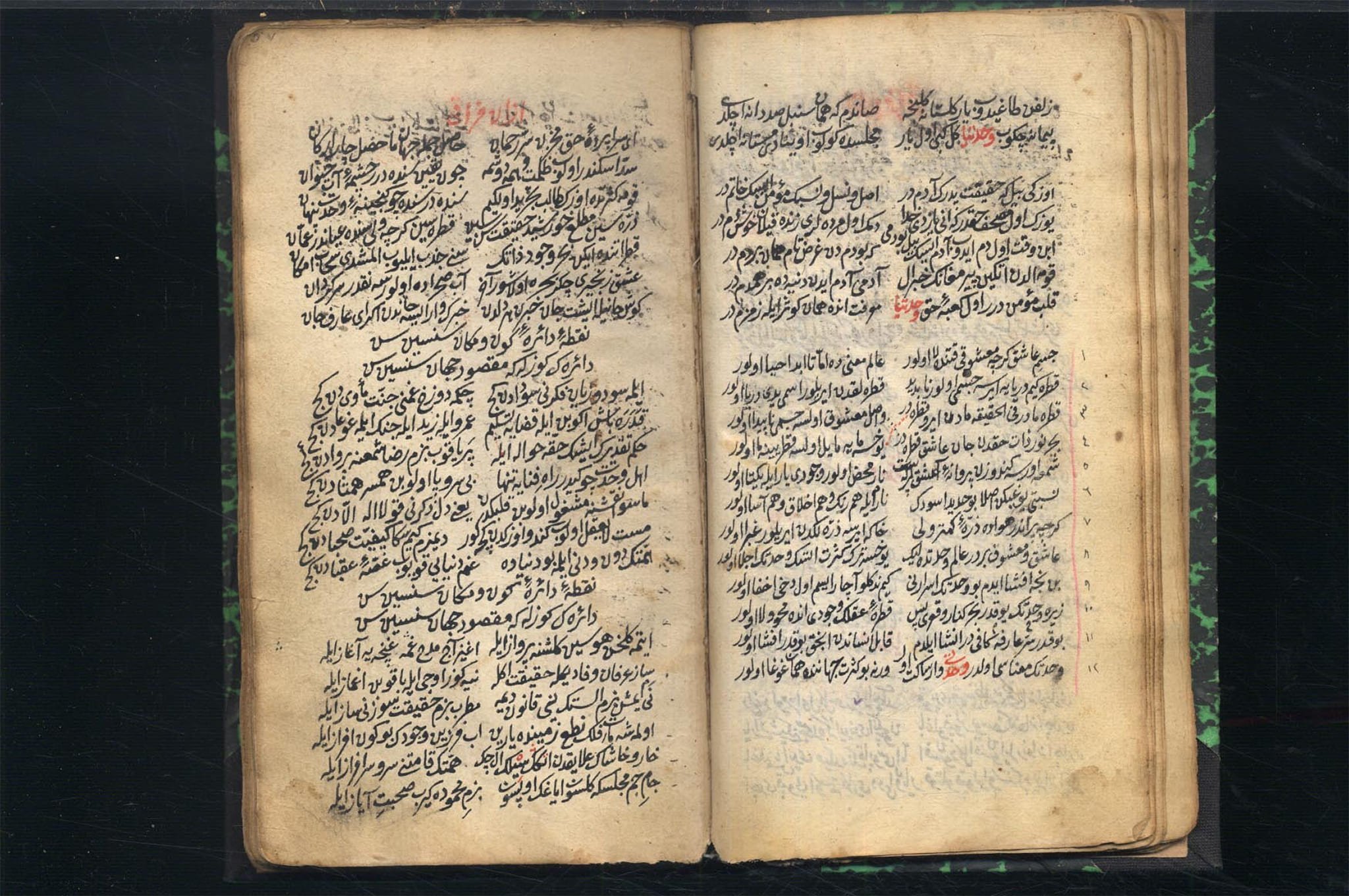
AHMED VAHDETI DOBRUNJANIN
Author: Shaykh, assist. prof. Edin Urjan Kukavica, PhD, Faculty of Educational Sciences of University of Sarajevo, shaykh of Naqshbandi and Rifa’i tariqas • Illustration: Divan Vahdetija u Gazi Husrev-begovoj biblioteci, rukopis br. 3049.

Ahmed Vahdeti (k.s.) was born at the town of Dobrun in Eastern Bosnia near Višegrad, where he seems to have spent a significant part of his life, since in several manuscripts the word Dobruni (Dobrunjanin) is written after his name, and he is the only Dobrunjanin (resident of Dobrun) whose name is mentioned in Islamic literature. Besides poetry, which has been preserved in its original form until this day, little is known about Ahmed Vahdeti’s life. Years of his birth and death are not known, although it is known that he lived in 1603. He acquired very broad education, probably in Sarajevo and Istanbul. The feeling of high admiration of and love for Persian language and poetry which he acquired in early youth encouraged him to master the disciplines of language and style to an outstanding level on the one hand, and on the other, it ensured a direct access to teachings and views which would later become his life. Vahdeti spent a great part of his life travelling from Bosnia to Istanbul and further; he also travelled to Baghdad, Basra and across the Hejaz, to end his life in a small village of Eregli near Konya, after 1603.
The first who brought the name of this interesting poet close to Europe was German turkologist Joseph von Hammer. Using Riyazi’s tezkire (bibliographic dictionary of poets and poetry) from the 17th century, he presented one distich by Vahdeti, together with the data that the poet is Bosnian, that he was known as Mulhid (Secessionist) Vahdeti, and that he died in 1008 Hijri year/1598 A.D. It turned out that Riyazi’s data about 1598 as the year of the poet’s death, which was provided by everybody, from Bašagić to Šabanović, is not correct. Indeed, Vahdeti’s Sarajevo Diwan includes two chronograms (poems 21 and 23) written on the occasion of events that happened after 1598. The later one celebrates accession of sultan Ahmet I to the throne, and we can therefore claim with certainty that the poet was alive in 1603. The pioneer in the field of studying our literature in Oriental languages – Safvet-bey Bašagić – in his work Bošnjaci i Hercegovci u islamskoj književnosti (Bosniaks and Herzegovinians in Islamic Literature) only copied Hammer’s data and translated the distich:
Ako čezneš za onijem svijetom, ne prestaj plakati,
jer ko u snu plače, iz muka sna se budi.
(If you yearn for the other world, do not stop crying,
Since who cries in sleep, wakes up from the bad dream.)
The journal Gajret, which was published in Sarajevo in the early 20th century, occasionally published translated verses by well-known Arabic, Turkish, Persian and Bosnian poets who wrote in Oriental languages in the column entitled Eastern Parnassus or Eastern Pearls. In one issue Safvet-beg Bašagić published a few verses claiming that they had been written by Vahdeti Bosniak:
Otvori usta nek iz njih biser se prospe!
To je moja hrana.
Nemoj se mučit šuteći kao gondže –
Na sred đulistana.
Kad narcis ugleda tvoje čarno oko,
Čudom se čudi.
A kad cipresa tvoj vitki stas spazi,
Hoće da poludi.
(Open the mouth and let pearls pour from them!
It is my food.
Do not torture yourself and be silent like a rosebud –
In the middle of a rose garden.
When a daffodil sees your beautiful eye,
It is amazed.
And when a cypress notices your slender waist,
It drives it crazy.)
Turkish historian Mehmed Sureyya, at the end of his work Sicilli-Osmani, where he presents biographies of the most significant people of the Ottoman sultanate, writes about Vahdeti as a poet from Bosnia, and Abdülbaki Gölpinarli believes that Vahdeti was one of the khalifs of the Mevlevi shaykh Divana Mehmed Čelebi (k.s.), who himself wrote poetry similar to Vahdeti’s. In the selection of Mevlevi poetry Gölpinarli presents one ghazal by Vahdeti, using his Istanbul divan:
1 Dervish tears pour toward Konya
Let the bleeding eyes live to see Nuh’s old age
2 Let him see Hazreti Mevlana in the blue sky
The great Sun (Šems) climbed over the dome
3 They watched him doing ‘sema’ under Arsh
In the night of revelation of the head of all prophets
4 This shaykh left so many years ago, but
Do not think that his followers left the battlefield
5 Like an angel that flies around high Arsh
His fellow travelers reel over it
6 The gate of the house of honor, equal to sublime Arsh
Holy ghost is the cleaner of their threshold
7 It arrived from the heaven to the table of the ruler (Mevlana), oh, my heart
Christ’s table is the food of his slaves
8 So celebrate their threshold, their ayats, oh, Vahdeti
Let angels in the sky marvel at your verses.
The poet’s divan is composed of 139 poems in Turkish, scattered in a dozen of medžmua (collection) manuscripts in Istanbul, Bursa, Sarajevo, Skopje and Mostar. In general, two copies of the poet’s diwan are known, one of which is found in Istanbul (Süleymaniye ktp. Selim Ağa. Hašim Paša. 85/2), and the other in Sarajevo (GHB, 3049).







